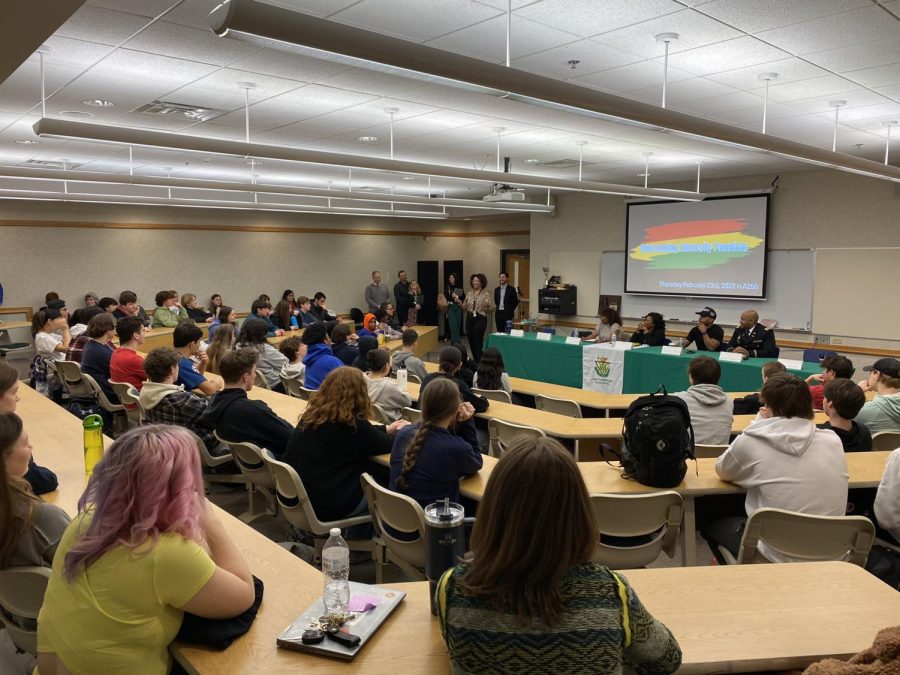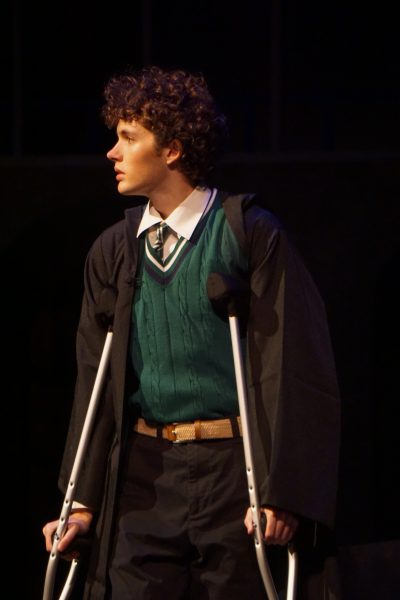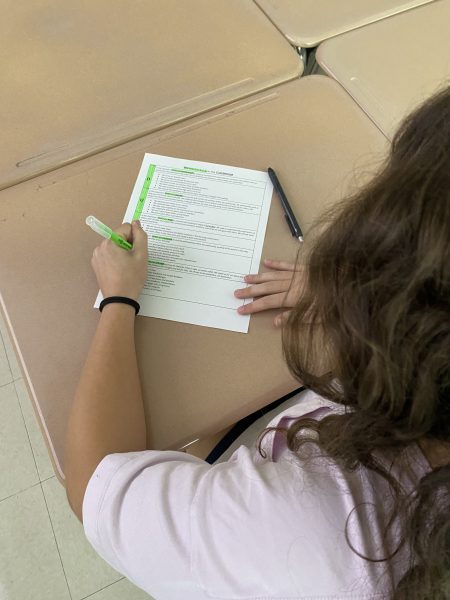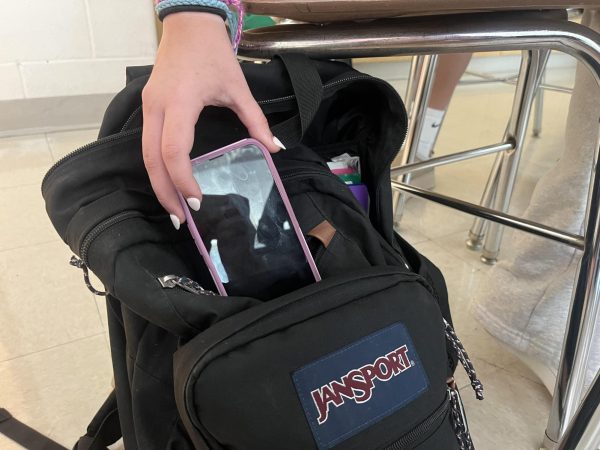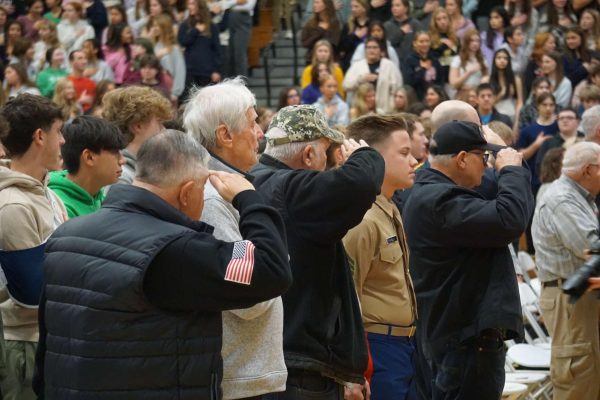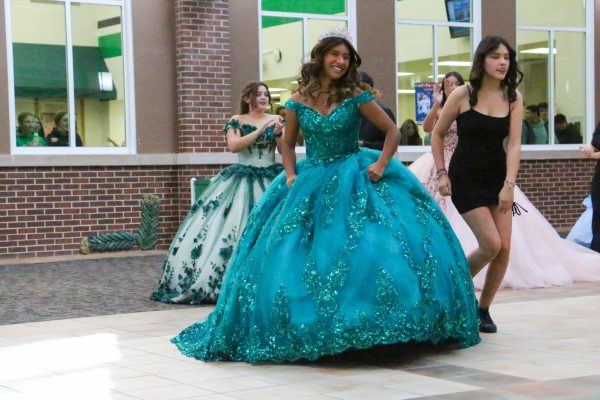Black Student Union panel addresses overcoming adversity and achieving equity
February is recognized as Black History Month. During this time, the country celebrates excellence in the Black community and also recognizes the hardships they have endured. In a panel organized by the Black Student Union and Allies Club, ranging from the fields of the army to teaching, explained how they have overcome adversity in their lives and careers. These guests included Gerald Charleston, Keisha Campbell, Brain Keys, and Joy Valentine.
Captain Gerald Charleston has been serving in the Military for 11 years. He also works as an assistant professor of military science at Western Michigan University. In the panel, he mentioned how building diversity in the armed forces is not only vital for our country, but also important for representation.
“Diversity, equity and inclusion is key to the health of any organization, but it is necessary for our Profession of Arms to be a credible representation of this country’s policy, culture, racial and ethnic diversity, and power,” Charleston said. “African Americans have traditionally been over-represented in the Army in relation to population share, but there is work to be done to ensure that that representation is seen throughout all ranks, including senior and General Officers.”
While Charleston focuses on diversifying the defense forces, Keisha Campbell reflects on advocating for more discussion about diversity in her high school years. Campbell is the Elmhurst Community Unit School District #205 Superintendent of Schools, she has been serving in this position for almost two years, and has worked hard every step of the way to get there. When asked what her mindset in high school was, Campbell explained how her family came to Elmhurst for the school district; however, she and her siblings were met with a lack of diversity, which shaped her perspective.
“I vividly remember as a sophomore going to the Principal’s Office and saying ‘We need to have more conversations about diversity, about inclusion. They’re not happening, and I don’t see the outlets for them. Let’s start this,’” Campbell said. “And so, that was my mindset in high school. I think a little bit of that was shaped by my brother’s experience and me saying I was going to have a different experience, a positive experience, and love and want to be here and be seen and was going to be willing to do whatever possible in order to do that.”
Campbell serves as an example to all students about speaking up and advocating for yourself. Similar to Campbell, Brain Keys had to advocate for himself in order to achieve his dreams. Keys is an actor, writer, and director originally from Chicago. He has starred in shows such as Lovecraft Country, Soundtrack, and The Big Leap. When asked about extenuating that he may have had in order to achieve his goals. He said
“The extenuating circumstance for me is everyday. I do something that I was told I would never be able to do [performing]. People can’t see my vision, people can’t see my dreams, so they’re like ‘Can you do that? Can you do that? I don’t know,” Keys said. “I was working at a broker company as a marketing analyst. And I said ‘I don’t want to do this anymore, I want to be an actor.’ And I quit my job that day and I pursued acting that day. Everyday I have to wake up and I pursue something that nobody else can see but me. And I have to find that motivation everyday to keep going because where I’m at right now is not the arrival point, it’s just the checkpoint.”
Key’s found his passion for storytelling after overcoming others’ doubts, and that is exactly what Joy Valentine teaches her students. Valentine is the director of the Early Outreach Program at the University of Illinois at Chicago, which focuses on bringing students to their fullest potential. Valentine began by questioning the validity of race as a biological factor, instead of a social construction. She also explained how she speaks many languages, and her upbringing had an effect on that.
“I was born in New York, so I grew up hearing different languages all around me. It wasn’t until I moved outside of a multi-lingual space to a mono-lingual place, that I understood the power of languages,” Valentine said. “So as I continued my education, became interested in writing and became what I call a ‘word-smith’, I was able to understand the power of languages. I am interested in languages because I love being an effective communicator. I like to tell students ‘communication is power’ and if you can do it in more than one way, you are that much further ahead of your peers.”
This panel not only brought to light the beautiful stories of these four individuals, but also the circumstances that they took head on to achieve their goals and dreams. Marissa Charleston, special education teacher and BSU adviser, took the time to set the intention of the panel with a lasting message,
“Black history is American history,” Charleston said.


